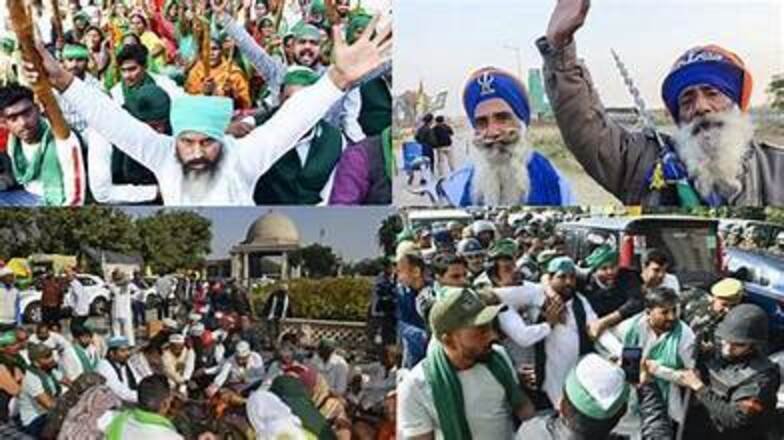Farmers protesting at the Punjab-Haryana border are attempting to journey to Delhi to demand a legal assurance for Minimum Support Price (MSP), despite a lack of communication from the government. On Sunday, Haryana Police used tear gas to deter farmers, who are united under the Kisan Mazdoor Morcha (KMM) and the Sanyukt Kisan Morcha (non-political), from entering Haryana and heading towards Delhi. In an interview, Sarwan Singh Pandher, coordinator of KMM, discusses the police’s actions, the significance of MSP, and the need for the government to heed farmers’ concerns.
The KMM consists of 101 farmer unions. The central demand of the protests at the Shambhu and Khanauri borders is for MSP to cover all crops, as it would help prevent the exploitation of farmers when they sell their produce in markets. While the government has set MSP for 22 crops, it’s crucial that this be applicable to the entire harvest. In Punjab and Haryana, farmers predominantly grow wheat and paddy, which the government does procure at MSP.
Yet, the ongoing discussions about crop diversification raise the question: how can farmers diversify without legal protection for MSP on other crops? Farmers have recently encountered issues with paddy procurement, resulting in forced sales at lower prices.
There is growing concern that full MSP coverage for paddy may not be guaranteed in the future. The situation for cotton farmers is also dire, with cultivation areas drastically declining due to pest issues, while the Cotton Corporation of India has only bought a small portion of the harvest at MSP. Recently, Vice-President Jagdeep Dhankhar showed support for farmers, and Union Agriculture Minister Shivraj Singh Chouhan addressed MSP in Parliament.
The KMM expressed their gratitude to Dhankhar and communicated their demands to him, urging him to convey their concerns to the federal government. Chouhan’s statement in the Rajya Sabha about the government’s commitment to purchase all crops at MSP highlights the ongoing discrepancies in the government’s actions, which is a primary reason for the protests. When questioned about the risks faced by farmers, including tear gas and water cannons—as evidenced by past incidents where a farmer died, and others lost their vision—Pandher stated that this time, a smaller, dedicated group of unarmed farmers is attempting to reach Delhi.
He criticized the police for not allowing them access, despite earlier assurances that they could proceed on foot. He asserted that citizens have the right to march to Delhi. Regarding meetings with Union Ministers, Pandher noted that they had four discussions in February with Union officials and the Punjab Chief Minister, but there has been no response since.
Although the Centre proposed to buy five crops on MSP for five years, the KMM is advocating for a legal guarantee covering all crops and consequently rejected that offer. They are willing to negotiate but see a lack of initiative from the government, expressing a desire for direct dialogue with the Prime Minister. At the Khanauri border, senior leader Jagjit Singh Dallewal is currently on an indefinite hunger strike, having entered its 13th day.
He was forcibly taken by the Punjab Police and admitted to a hospital but started his hunger strike there before returning to the border. He has reportedly lost 9 kg during this time. The Punjab government appears to be collaborating with the Centre, having previously orchestrated Dallewal’s admission to the hospital and now permitting the Haryana government to set up barricades in Punjab. They also relayed prohibitory orders from the Ambala district administration to several farmer union leaders.










